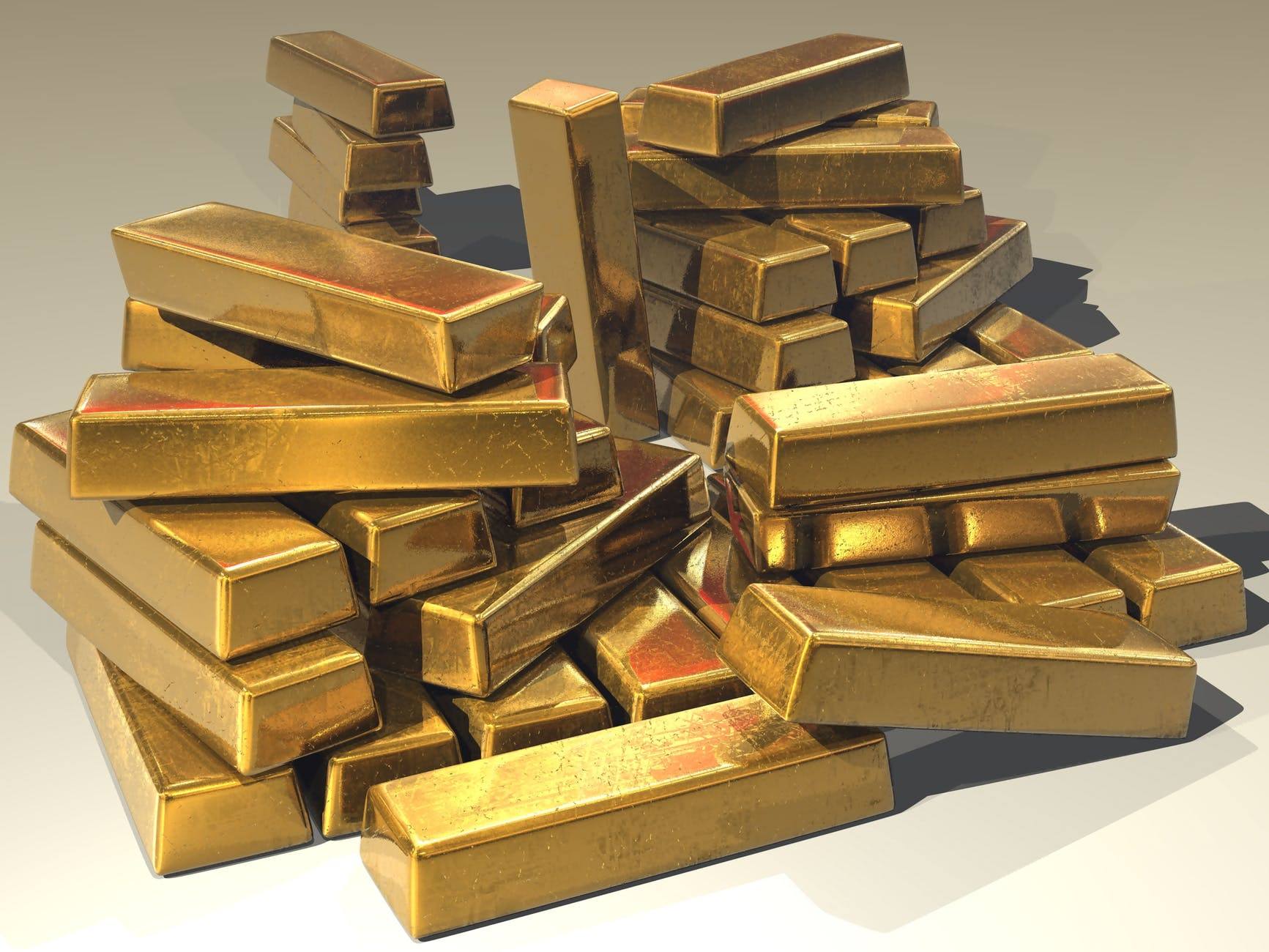Gold has been used over the ages as a means of payment. But even today, this precious metal is used by nervous investors , especially when they expect volatile times or a significant depreciation of their currency.
Gold returns nothing in theory, at least not in the context of interest. Generally, gold is perceived to be a form of inflation security or if other assets are at risk of being loss-making. Indeed, it was also the case in the past that the price of gold also grew as its life span increased.
However, this defense is typically just a fact in the long run. The value of gold will fluctuate greatly in the short term.
How can you invest in gold?
For different investor profiles, there are 4 ways of investing in gold.
- Gold bars and coins: through your bank or through a specialised institution, you can acquire actual gold. This gold can then be stored in a safe. You play it safe in this way. Beware of collectibles: for special gold coins, you usually pay more than their worth in gold.
- Gold trackers: These are investment funds whose price is equivalent to the price of gold. When additional capital is invested in the fund, they purchase gold. You invest indirectly in gold in this way, without having to keep it on your own.
- Gold mines: shares of gold mines may be bought. If the gold price increases, there is a fair risk that your share price will increase as well. But a mine can also go through difficult periods or even go bankrupt like any company.
- Derivatives: There are financial derivatives that bet on the price of gold for experienced investors who are not risk averse.
How’s the price of gold determined?
24 hours a day, gold trade occurs and changes with the time zones. This trade is often carried out by phone or electronically. Its price is passed on to data suppliers such as Reuters or Bloomberg after each trade, who continuously publish the ever-changing gold price.
This will be done at the price when you buy or sell gold, at the time you contact your bank or gold dealer. Please note: if you purchase, you will pay the bid price, which is slightly higher than the advertised price; if you sell, you will get the bid price, which is slightly lower than the cash price. The difference between the price of the bid and the price of the offer is called the ‘spread’ and depends on the dealer where the gold is bought or sold, but also on the sum exchanged.
For eg, you pay about 1 percent above the announced price for a 1 kg gold bar and about 2.5 percent above it for a 50 g gold bar.The price would be even further away from the cash price when you sell so-called ‘old gold’ – such as rings or other jewels -: jewels are not 24-carat pure gold, and on top of that, the cost of remelting the gold is also resolved.
What is influencing the gold price?
There are many variables which affect the price of gold. How essential each of these variables is, or which one is the deciding factor, is not known. If you consider purchasing or selling gold, know that the future price of gold will be determined by the following factors:
- Market interest rate: the more interest an investor gets for, for example, a bond or a savings account, the less likely he or she is to invest in anything such as gold that does not produce interest at all. Therefore, in theory, the price of gold would fall as interest rates increase , and vice versa.
- US dollar exchange rate: The price of gold is sometimes calculated as US dollars per troy ounce (approximately 31.10 grams). For instance , the price of all assets will fall in US dollars as the US dollar rises in value, and so will gold. The price of gold, calculated in euros, would then remain approximately the same.
- Inflation: Everything becomes more costly when there is inflation. It is not surprising that gold will become more costly as well. Consequently , the price of gold typically increases when economic statistics that suggest approaching inflation are released.
- The international political situation: when, for example, there is a danger of war, the price of gold increases again. To gold as the meaning of flight. Usually, in the event of foreign political instability, the price of gold would thus increase. Therefore, this surcharge is likely to vanish when panic breaks out.
- Supply and demand: In particular, central banks retain huge stocks of gold. This puts pressure on the price of gold as they plan to sell all or part of these stocks.
